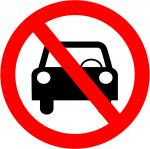 Last May (2009) our second car threw a timing belt which sucked into the engine and effectively destroyed the vehicle. Although we are a family of 5, with one student in school 25 miles away due to custody issues, we have never replaced that car.
Last May (2009) our second car threw a timing belt which sucked into the engine and effectively destroyed the vehicle. Although we are a family of 5, with one student in school 25 miles away due to custody issues, we have never replaced that car.
Kermit was wrong: It is "easy being green!" If we make ourselves aware that we have choices, many earth-friendly alternatives require very little effort and give big payoffs. Here is one household's experiment in going Green, the easy way.
 Last May (2009) our second car threw a timing belt which sucked into the engine and effectively destroyed the vehicle. Although we are a family of 5, with one student in school 25 miles away due to custody issues, we have never replaced that car.
Last May (2009) our second car threw a timing belt which sucked into the engine and effectively destroyed the vehicle. Although we are a family of 5, with one student in school 25 miles away due to custody issues, we have never replaced that car.
 UPDATE: Ended the bike-year (on the solstice) having driven 904 bike miles that I didn't ride in the car. See the prior post for the details on how you can become less of a car-rider . . . and for links to the Red Tag Your Car series.
UPDATE: Ended the bike-year (on the solstice) having driven 904 bike miles that I didn't ride in the car. See the prior post for the details on how you can become less of a car-rider . . . and for links to the Red Tag Your Car series. It is interesting that last week, on Bike to Work Day, May 14, I logged an even 800 miles on my bike over the preceding 11 months. (I will probably hit 900 by the end of the school year, and may make an effort to hit the symbolic 1000 mile point.)
It is interesting that last week, on Bike to Work Day, May 14, I logged an even 800 miles on my bike over the preceding 11 months. (I will probably hit 900 by the end of the school year, and may make an effort to hit the symbolic 1000 mile point.) At this time (see item #2) I tend to view the need to ride in a car as a failure; of errand route planning, of ability to find a truly local option, of trying to squeeze too much to fast into a life on the road.
At this time (see item #2) I tend to view the need to ride in a car as a failure; of errand route planning, of ability to find a truly local option, of trying to squeeze too much to fast into a life on the road. It's a fairly ancient and standard joke that in the world of Politically Correct Terminology a trash hauler is a "sanitary engineer." Despite that, it is actually true that how we name things does affect how we perceive them. Here are a few suggested alternative terms for things that just might help folks understand why the green version is important:
It's a fairly ancient and standard joke that in the world of Politically Correct Terminology a trash hauler is a "sanitary engineer." Despite that, it is actually true that how we name things does affect how we perceive them. Here are a few suggested alternative terms for things that just might help folks understand why the green version is important: food." Try this term swap yourself, and suddenly organic food seems a lot more reasonable.
food." Try this term swap yourself, and suddenly organic food seems a lot more reasonable.  nature of human powered transportation in our cities and suburbs. I have taken to referring to "bike drivers" when discussing vehicular cyclists. Bike drivers have a right to use the road; bike drivers are serious vehicles, going places and doing things, not just sports enthusiasts out for a little ride.
nature of human powered transportation in our cities and suburbs. I have taken to referring to "bike drivers" when discussing vehicular cyclists. Bike drivers have a right to use the road; bike drivers are serious vehicles, going places and doing things, not just sports enthusiasts out for a little ride. So, you might hear me say something like this:
Tomorrow I'll drive my bike to the market after work; because of the bike I'll have an easier time parking than most of the car riders making the same trip. I'll buy our favorite clean pasta and sauce to cook for a big group of folks, but will probably compromise and buy chemically grown dark chocolate for the dessert we are making, and dirty artichokes because the clean ones are currently out of stock. "
See what I mean? The need to buy chemically grown and dirty food over clean food is terribly reduced. In my revised paragraph, the patchouli-tinged aura associated with a fluffy bike ride to buy organic pasta is reduced, as is the whingeing and whining factor that comes of complaining that your store is out of organic vegetables. No one could blame you for griping about having to buy chemically grown food -- even though most people don't realize that's what they're eating already anyway!
 Remember the advice of good old Humpty Dumpty:
Remember the advice of good old Humpty Dumpty:
'When I use a word,' Humpty Dumpty said, in a rather scornful tone,' it means just what I choose it to mean, neither more nor less.' 'The question is,' said Alice, 'whether you can make words mean so many different things.' 'The question is,' said Humpty Dumpty, 'which is to be master - that's all.'

For me, Cooking with Care means using both sustainable and healthy cooking methods. The PTF  folks make use of a solar oven regularly -- which is beyond my personal commitment level. But we choose to use natural gas for our stove and oven, since it is a more efficient and less "carboniferous" (lower CO2) method for cooking than an electric range. If we ever had a surfeit of solar electricity on our hands it might make sense to use an electric range; but we only do 70-90% solar annually, so not yet.
folks make use of a solar oven regularly -- which is beyond my personal commitment level. But we choose to use natural gas for our stove and oven, since it is a more efficient and less "carboniferous" (lower CO2) method for cooking than an electric range. If we ever had a surfeit of solar electricity on our hands it might make sense to use an electric range; but we only do 70-90% solar annually, so not yet.
I also like the common sense reminder Don't Waste It (food); that's a no brainer, of course, since trashing edible food costs the local household budget needlessly, but it also affects the larger ecosystem. Where a community or country is particularly profligate, the waste can really add up to a level that moves food production into a non-sustainable place.
The other half of waste, however -- at least in my mind -- comes down to what one does with the parts of the food one does not eat. Trimmings from vegetable preparation, for example. Th e potato that went soft in the back of the bin. Even the green beans which no threat or entreaty could convince the three-year-old to eat. Can we avoid wasting them? You bet!
e potato that went soft in the back of the bin. Even the green beans which no threat or entreaty could convince the three-year-old to eat. Can we avoid wasting them? You bet!
A small bin on the counter and simple compost bin in the yard or on an apartment patio (yes they do have a sealed compost bin for just such a situation) is a great way to reduce landfill mass and avoid wasting the excellent fertilizer and soil builders one might otherwise throw away. For a longer rant on composting, click here.
The final concept -- Homegrown is Best -- is both one of the easiest to achieve at some level and hardest to achieve at a significant level. But it is an excellent aspirational goal -- especially  since you know that the food is organic, definitely local and fair trade. More interestingly, I have found I am far less likely to be wasteful with food that I have grown. I know how long it took to get that bowl of broccoli or pan of fried potatoes, and you will see me turn positively miserly when it comes to using up food I have invested months of time in!
since you know that the food is organic, definitely local and fair trade. More interestingly, I have found I am far less likely to be wasteful with food that I have grown. I know how long it took to get that bowl of broccoli or pan of fried potatoes, and you will see me turn positively miserly when it comes to using up food I have invested months of time in!
 The other night a lady spoke at a meeting of our city Environmental Advisory Commission, calling herself an "uncommitted reusable bag user." She had come down to the City Council chambers to support a proposal to prohibit single-use plastic bags and place a disposal and education fee on single use paper bags.
The other night a lady spoke at a meeting of our city Environmental Advisory Commission, calling herself an "uncommitted reusable bag user." She had come down to the City Council chambers to support a proposal to prohibit single-use plastic bags and place a disposal and education fee on single use paper bags. you will never remember to bring them into the store. You can make them yourself -- as a surprising number of folks do -- or collect them from all sorts of advertisers, or just vow to buy one (1) each time you shop for, oh say, two months.
you will never remember to bring them into the store. You can make them yourself -- as a surprising number of folks do -- or collect them from all sorts of advertisers, or just vow to buy one (1) each time you shop for, oh say, two months. In all seriousness, the reusable bag would-buts fall into three major categories -- old habits, self-justification (not enough bags, too many needed), and embarrassment at looking like an enviro-loon. None are insurmountable. You know you have made it to the sustainable place when you make an unexpected stop, feel just a little upset that you had to take a plastic bag for something that you couldn't at least carry away without a bag!


NOVEMBER 28, 2007
 We are a just one family trying to make the transition from an unsustainable lifestyle to a reasonable one, and this blog has chronicled some of our discoveries and experiences about the "easy" green things to do.
We are a just one family trying to make the transition from an unsustainable lifestyle to a reasonable one, and this blog has chronicled some of our discoveries and experiences about the "easy" green things to do. clean foods are still priced in the region of luxury items, and we just can't justify the cost; in other cases we have our over-processed, chemically grown food vices we are not willing to give up.)
clean foods are still priced in the region of luxury items, and we just can't justify the cost; in other cases we have our over-processed, chemically grown food vices we are not willing to give up.)
